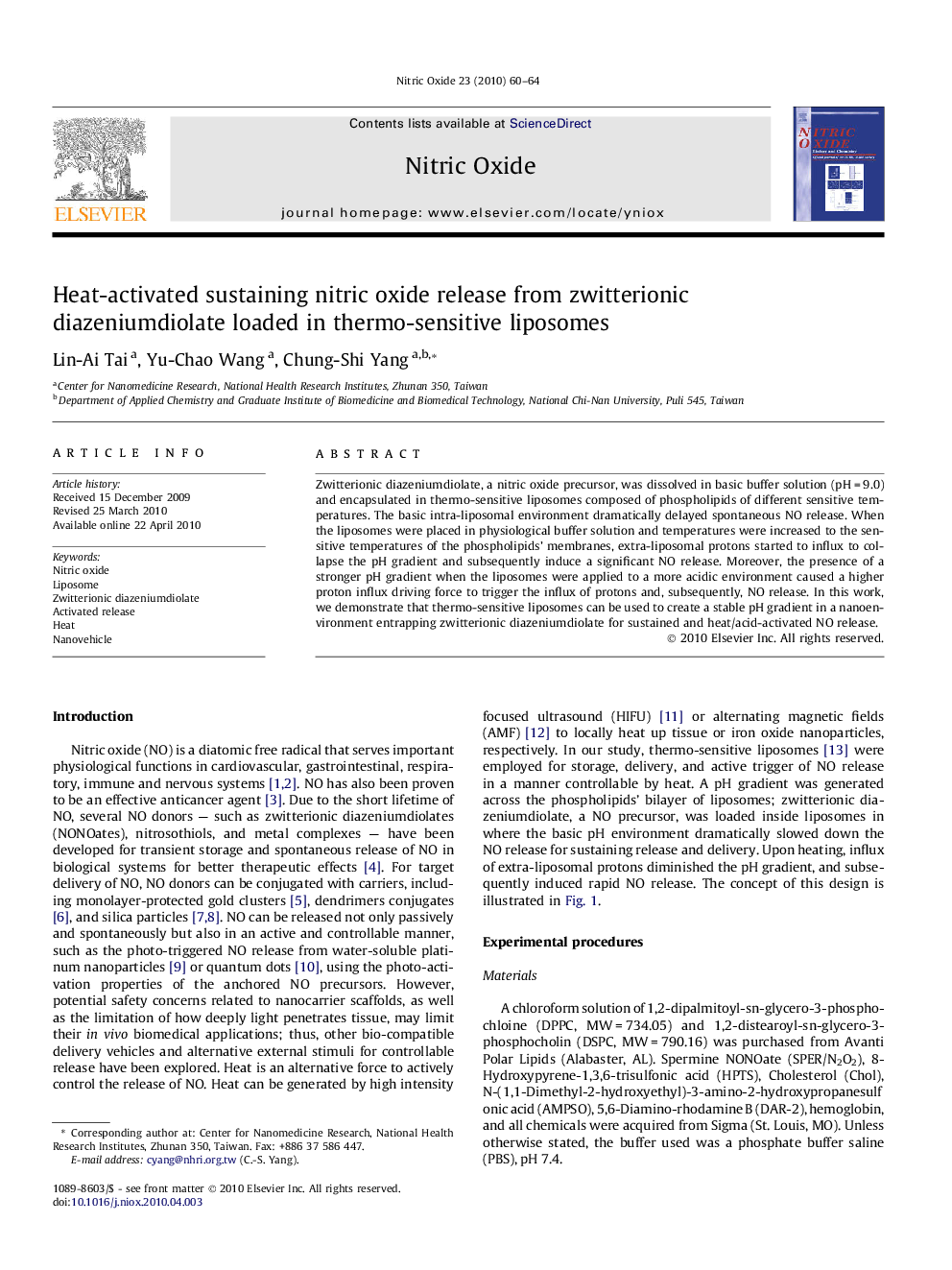| Article ID | Journal | Published Year | Pages | File Type |
|---|---|---|---|---|
| 2001266 | Nitric Oxide | 2010 | 5 Pages |
Zwitterionic diazeniumdiolate, a nitric oxide precursor, was dissolved in basic buffer solution (pH = 9.0) and encapsulated in thermo-sensitive liposomes composed of phospholipids of different sensitive temperatures. The basic intra-liposomal environment dramatically delayed spontaneous NO release. When the liposomes were placed in physiological buffer solution and temperatures were increased to the sensitive temperatures of the phospholipids’ membranes, extra-liposomal protons started to influx to collapse the pH gradient and subsequently induce a significant NO release. Moreover, the presence of a stronger pH gradient when the liposomes were applied to a more acidic environment caused a higher proton influx driving force to trigger the influx of protons and, subsequently, NO release. In this work, we demonstrate that thermo-sensitive liposomes can be used to create a stable pH gradient in a nanoenvironment entrapping zwitterionic diazeniumdiolate for sustained and heat/acid-activated NO release.
